Sapiens

Children aren’t biologically programmed to be picky eaters, so why do we feed them sugary and ‘ultra-processed’ foods?
In countries such as the U.S. and Canada, the term “children’s food” conjures images of milk, sugary cereals, yogurt tubes, and ...

Did ancient humans experience depression or anxiety?
Operationalizing a perspective that discusses generalized anxiety and other mental health disorders without interpreting history through the lens of our ...

AI has made massive strides in recent years — but it can’t perfectly replicate human language. What makes this task so complicated?
Researchers in artificial intelligence have made extraordinary strides in mimicking human language—but they still can’t capture the parts that truly ...
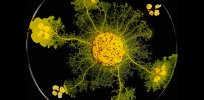
Evolution is not linear: Here’s why Darwin believed there are no ‘higher’ or ‘lower’ creatures
Why is our species almost universally seen as the logical endpoint of evolution, with all other species serving as inferior ...

Viewpoint: How much are male-female differences grounded in genetics?
The belief that men are by nature aggressive and belligerent but protectors—like the Roman god of war, Mars—and women are ...
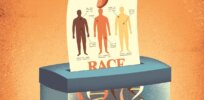
Viewpoint: ‘The race question’ — Two cultural anthropologists argue case against ancestral-based biological differences
Our recent book, Racism, Not Race, tackles a big lie: The idea that human beings have biological races. Biological races ...

Neanderthals were well suited for ‘explosive’ short sprints, not long-distance marathons
Homo sapiens are well-designed for loping along for long distances across open landscapes—especially when compared to Neanderthals. They had legs and ...
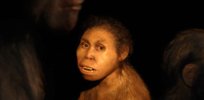
Podcast: Why did we survive, when the Denisovans and Neanderthals did not?
The Denisovans have long been one of the most elusive ancient human cousins, until now. In May 2019, scientists revealed ...

Reconstructing the Neanderthal throat—did they have their own language?
At the very least, in order for spoken language to be a possibility, a species has to have the right ...
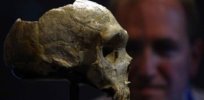
Inside the brains of Neanderthals: Were they capable of ‘symbolic and abstract thinking’?
We know from the archaeological record that much of Neanderthal hunting, foraging, and toolmaking behavior was quite similar to that ...

Extinct strain of hepatitis B found in human remains suggests virus had greater diversity
Despite its prevalence, little is known about the ancestral roots of the [hepatitis B] virus. New findings, published [May 9] in Nature, ...
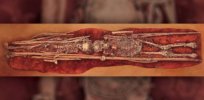
Sunghir: What the strange paleolithic burial site tells us about ancient humans
Around 34,000 years ago, hunter-gatherers who roamed the Russian plains started to bury their dead at the site of Sunghir, ...

Evidence ancient humans not ‘violent apes’ but distinctly compassionate
[Editor's note: Penny Spikins is an archaeologist who specializes in early prehistory and human origins.] Yes, there is evidence of interpersonal violence ...

